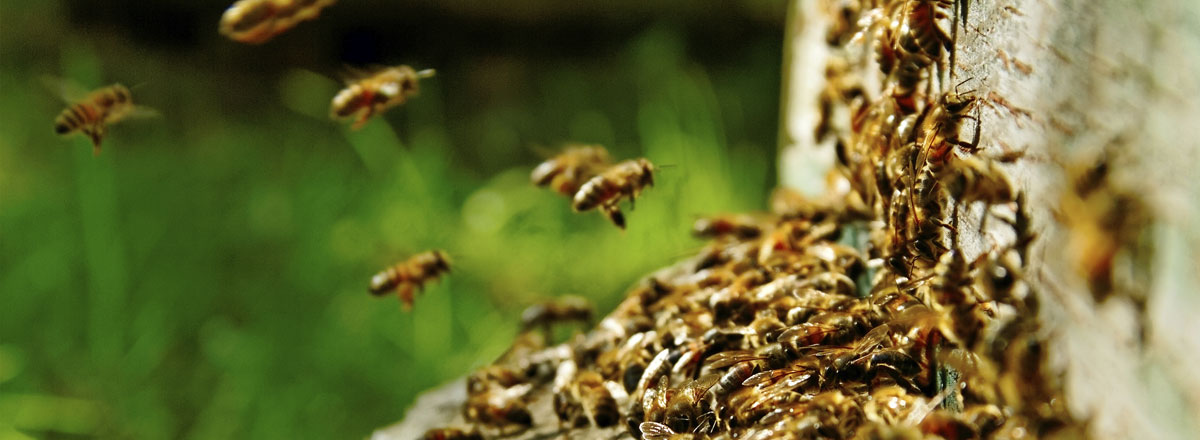Bees, wasps and hornets
Learn more about our pest guide
Pest control service
Integrated Pest Management
Termite solutions
Common pest
Specialist services
Hygiene and scenting
Hygiene services
Scenting services
Space & surface treatment services
Industry & residential
My business handles food
My business doesn't handle food
MY Home services
About Rentokil Initial

Bee, wasp and hornet
Call us for a free quote on 400 820 8770 or contact us
Although known for their role in pollination and producing honey, bees can become a threat to homeowners when they build their hives near or inside homes. Bees are considered less dangerous than other stinging insects like wasps. In China, bees like honey bees and carpenter bees seldom sting unless they are provoked. However there are aggressive species such as the Africanized honey bees that will sting humans in large numbers, fortunately we’ve yet to spot any of them here.
Bee stings have the potential for an allergic reaction, resulting in anaphylactic shock. Anaphylactic shock is a serious medical condition that requires immediate medical assistance and can even cause death.
Like the bee, a wasp sting is a form of defence. If wasps feel threatened or if their nest is disturbed it makes them very aggressive and provokes them to sting.
A sting by a social or common wasp (also known as a yellow jacket) is a painful experience. It can be very upsetting and frightening for young children.
Wasp stings may even be life threatening to people allergic to the poison in stings. This allergic reaction is known as anaphylaxis.
People who have been stung several times previously and have become sensitised are more likely to suffer this systemic reaction.
The good news is that this type of allergic reaction is rare and it is even rarer for it to be fatal.
Do not panic - If you find there are wasps nearby keep calm and move slowly away.
Do not scream, flap your arms or swat them - This will just agitate them and make them more aggressive.
Avoid strong, sweet smells - Do not use highly perfumed fragrances, shampoos, hair sprays.
Avoid bright colours - Do not wear bright, bold floral patterns on clothes and bags, which could attract wasps.
Avoid orchards - Or any soft fruit plants and even uncovered bins, where wasps gather seeking food.
Avoid open drinks - If drink cans or bottles are left unattended, it may encourage wasps to crawl inside.
Cover food and drink - Always keep food and drink covered when eating outdoors to deter wasps.
Stay clean - Ensure children’s hands/faces are cleaned after eating sweet foods/drinks.
It is difficult to know how you might react to a wasp sting, if you have never been stung before. There are some practical things you can do to help with any pain you might feel
If someone has the following symptoms after being stung, immediately call for an ambulance:
Call Rentokil Initial on 400 820 8771 to arrange a visit or book online today.
Wasp nest removal is one of the most reliable ways to reduce the number of wasps buzzing around your home and the risk of painful stings.
You will continue to have a wasp problem throughout the summer as long as a nest remains untreated on your property.
At Rentokil Initial, our qualified, local technicians require just one 30 - 45 minute visit to treat a wasp nest.
We will also offer expert advice on preventing wasp problems in the future.